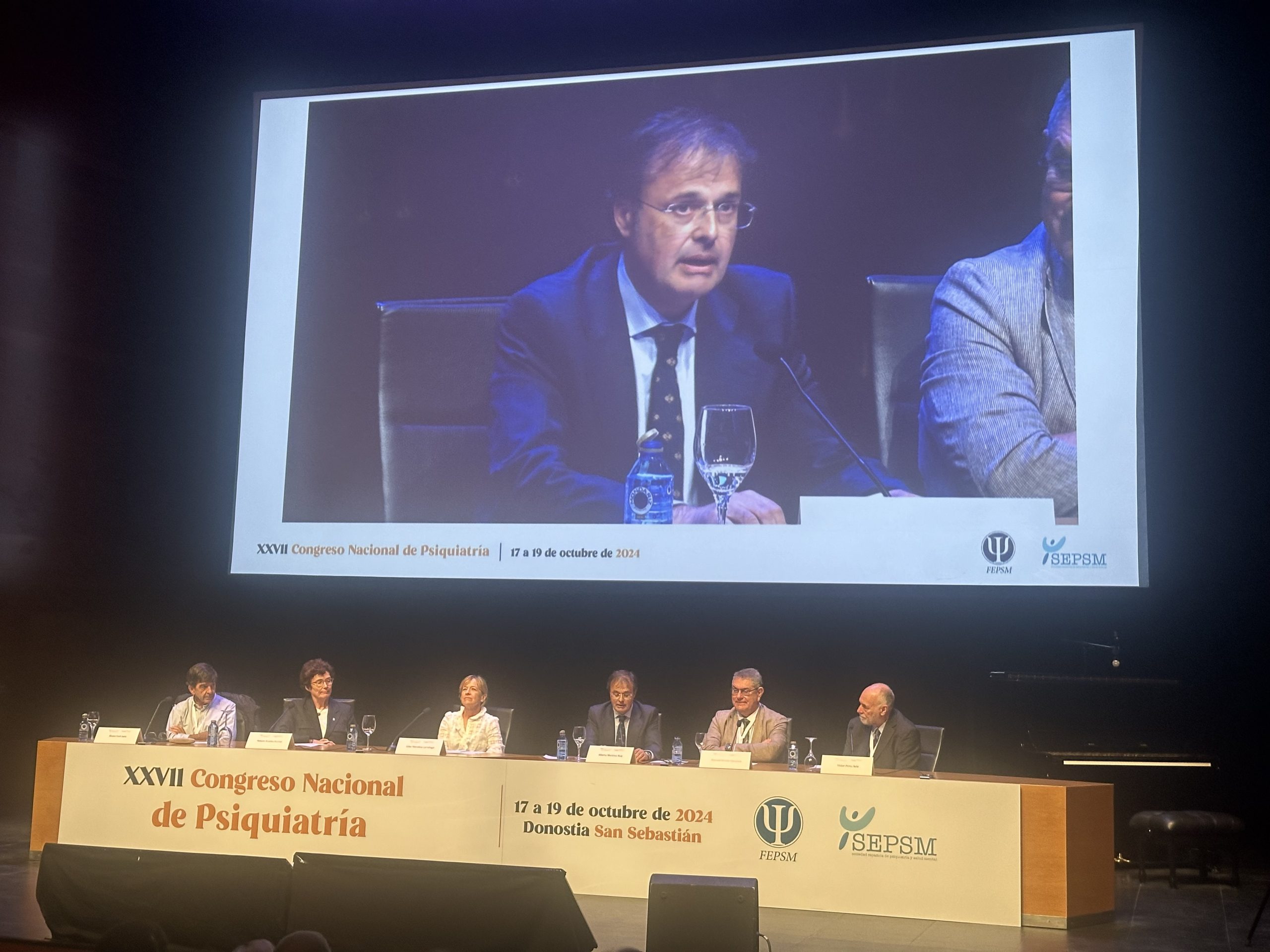- Continuing to strengthen attention in this area is a priority for the Department of Health
- This percentage of growth in adult psychiatry rises to doubling the staff in the case of child psychiatry
- The outpatient network and therapeutic improvements have made it possible to reduce activity and admissions to hospitals in mental health networks
- The Health Minister, Alberto Martínez, announces the creation of a specific coordination structure within Osakidetza for a comprehensive approach that improves the response to the population’s demand
Mental health is one of the top priorities of the Health Department of the Basque Government, which is committed to the person as the central axis and a community approach to care. This was stated by the Minister of Health, Alberto Martínez, in his speech at the XXVII State Congress of Psychiatry, which is being held in Donostia with the participation of more than 1,500 experts in this field.
As he stressed, in recent years, the evolution of care has entailed learning for the system and a significant increase in the number of specialized professionals. So, The workforce in hospital and mental health structures in the Basque Country has increased by 63% since 2009. Specifically, 58% in the case of adult psychiatry and 182% in the case of child psychiatry; There are also 19% more active professionals compared to the structural workforce. In Euskadi there are 15 psychiatrists per 100,000 inhabitants, the highest ratio in the State. At the same time, the outpatient network and therapeutic improvements have made it possible to reduce the average activity and the number of admissions to hospital centers in the mental health networks.
In this sense, Alberto Martínez has valued the fact that the Department of Health and Osakidetza anticipated and planned, even before the pandemic, a series of resources to attend, especially, to the needs derived from serious mental illness.
New child and youth care units
So, I remembered that In recent years, 8 new day hospital units have been opened for early care and for the needs of the child and adolescent population. in the three historical territories. And announced the upcoming opening of two new units at the Cruces University Hospital: a High Resolution one that will care for acute patients in crisis to whom specific interventions are applied that allow their continuity of outpatient treatment or their psychiatric admission; and another of Intensive Hospitalization in a closed regime and short stay for subsequent referral to outpatient facilities, if an improvement is observed, or, where appropriate, for admission to a subacute facility.
All this, within the framework of the Euskadi Mental Health Strategywhich pays special attention to eating disorders, child and adolescent mental health and dual pathology (related to addictions). In addition to programs such as the one that Osakidetza has been developing for two years in the field of children’s health in Primary Care; screening for major depression in adolescents; the social and health agreements with the Provincial Councils; and other strategies such as suicide prevention and social health, in the hands of regional and local institutions.
The Minister of Health has insisted on his determination to continue strengthening attention in this area, where it has announced the launch of a specific coordination structure within Osakidetza for a comprehensive approach that improves the response to the population’s demand, in addition to the creation of the functional position of community care psychologist for non-care work, education and addressing patient groups.
Counselor Alberto Martínez is aware that, in recent years, concern has increased over situations of emotional stress and psychological discomfort that require attention, always from the double premise of not psychiatrizing processes related to emotional well-being but without trivializing the significance of the serious illness. He also highlighted that, in parallel, this has led to a certain reduction in the stigma surrounding mental illness: “It is very important that citizens do not hide what is happening to them, that they go to ask for help, and above all that they have somewhere to turn,” he stated. , emphasizing that in many environments, such as education or work, awareness of this reality has been raised and protocols and resources are already being articulated to address it.
At the State Congress of Psychiatry, this morning, Andrea Gabilondo, director of the Gipuzkoa Mental Health Network of Osakidetza, received an award for the Best Poster in Clinical Research in Psychiatry for the development, evaluation and deployment in Euskadi of the BIZI program to promote suicide prevention by community agents.
